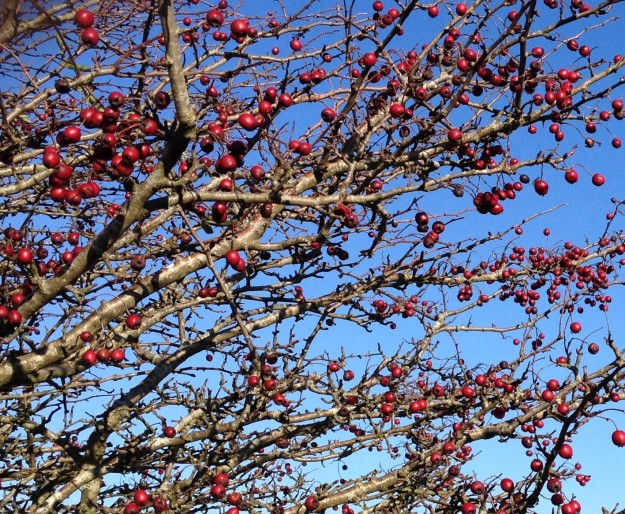So, let’s start with some definitions:
- Straight. In this context this means heterosexual. Which I definitely am. And married. But straight could also mean normal, conforming to society. I’m not sure I’m that.
- Pro-gay. I struggle with generalising about groups of people. But I am definitely pro the gay people I’ve known. And the ones I know about from the media and those I will get to know.
- And Christian. In some ways the hardest thing to define. It’s a word with a great deal of baggage. Maybe it’s easier to say I’m a follower of Jesus and a member of a church. The two go together and one feeds into the other but they are not exactly the same.
In some ways I wish I didn’t need to write this blog. It will upset some people I know and I’m sorry for that. But the stakes are very high. There is a battle going on for the very soul of the church in the UK. At the moment it could be lost because we are simply too polite to have an argument.
Before I answer the question I would like to clarify what seems to be the orthodox Christian position on homosexuality. Recently I had a long conversation with a well known Pastor and this was his position. It certainly won’t be every Christian’s opinion and I think it is at the extreme end of Christian thought but here it is:
- Sex between two men or two women is always wrong under all circumstances.
- Gay marriage is not marriage at all. Marriage must always be between a man and a woman.
- Homosexual sex is such a serious sin that any gay man wanting to become a Christian must either be ‘cured’ of the condition or agree first to to complete celibacy.
Our conversation went on for a long time and involved a lot of complicated theology. But as it went on I became more and more convinced that all the anti-gay arguments didn’t add up to anything. A quick google search will find them for you if you’re interested. So, why am I a pro-gay Christian?
Firstly, because God made us and He made us sexual beings. That doesn’t mean we shouldn’t be careful, considerate and faithful sexual beings. I’m a great believer in marriage. But he made us gay and straight and all shades in between. As Christians we should be helping people be the best they can be, whatever that is, not turning them away.
Secondly, because I know what it is to grow up feeling very different and out of place. I used to look at the popular pretty girls and think ‘How do they do that?’ Because I wasn’t popular and pretty. I was awkward, clever, plain and argumentative. It’s really hard not to fit in, especially when you are young and for that reason those who grow up gay, who often find themselves in a hostile world that they don’t fit into get my compassion not my condemnation. Jesus didn’t give many commands. He taught more using stories and also by example. But, less than 24 hours before he hung on a cross, He gave this command: Love one another as I have loved you. He loved without barriers, even thieves and prostitutes. There is no record of Jesus meeting a gay person or talking about homosexuality but I don’t know of any reason why he wouldn’t have loved them too.
And thirdly because it is simply not our place to judge. This Jesus talking again, from the Message version which is very vivid but all translations have the same sense.
““Don’t pick on people, jump on their failures, criticize their faults— unless, of course, you want the same treatment. That critical spirit has a way of boomeranging. It’s easy to see a smudge on your neighbor’s face and be oblivious to the ugly sneer on your own. Do you have the nerve to say, ‘Let me wash your face for you,’ when your own face is distorted by contempt? It’s this whole traveling road-show mentality all over again, playing a holier-than-thou part instead of just living your part. Wipe that ugly sneer off your own face, and you might be fit to offer a washcloth to your neighbor.”
Matthew 7:1-5 MSG
This isn’t easy ‘liberal’ theology. This is hard Jesus theology because we love to judge. Gay people are easy to identify, easy to see but that doesn’t mean we should judge them either.
I want to end with a little thought experiment. Imagine one Sunday all the people coming to church had all their sins for the week written in brightly coloured letters hovering over their heads. Here is a selection:
- I shouted at my kids because I’d had a stressful day at work.
- I had a minor accident with a parked car and drove away without leaving a note.
- I had sex with my long term boyfriend even though we are not married.
- I spent £300 on a treat for myself and didn’t give anything to the church.
Just for this week it’s the job of the stewards to decide who gets in and who is too sinful even to enter the church. Of course it would be horrible both for the judges and the judged. When I think of our lovely stewards I think they would just let everyone in and, after reading the first few lists, would refuse to even look. And that would be the right Christian response. It is simply not up to us to refuse entry to God’s kingdom on the basis of any sin.
I know there are a lot of Christians who share my views. I’m sure to get a lot criticism for writing this but if you agree with me please let me know.











